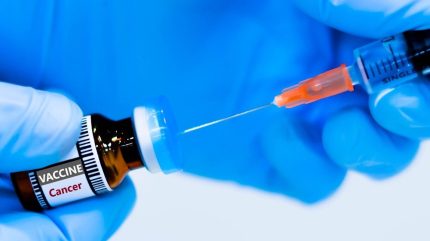
Transgene’s stock has dropped after a Phase II trial of its therapeutic vaccine candidate TG4001 (tipapkinogene sovacivec) failed to meet its primary endpoint of improvement in progression-free survival (PFS) in solid tumours.
Transgene’s share price fell 18.8% from €1.17 at close on 11 October to a low of €0.95 on Monday morning (14 October) after the announcement, settling at around €1 per share.
The trial (NCT03260023) aimed to assess the impact of TG4001 in combination with Merck KgaA’s Bavencio (avelumab), a PD-L1 checkpoint inhibitor, in 150 patients with recurrent or metastatic HPV16-positive cervical and anogenital cancers who were either treatment-naïve or had one prior systemic chemotherapy, but no earlier immunotherapy.
The addition of TG4001 did not produce statistically significant improvements in PFS across the study population, however, Transgene said it remains optimistic. In a subgroup of patients with cervical cancer – comprising about 54% of the trial population – the data suggested a potential trend towards improved PFS.
The French biotech is planning further analysis, including examining the data by PD-L1 status, before deciding on the next steps for the candidate’s development. PD-L1 status refers to the level of expression of the PD-L1 protein on tumour cells, which can influence how well a patient’s cancer responds to Bavencio.
TG4001, a viral-based vaccine, works by inducing an immune response against cells expressing the HPV16 E6 and E7 antigens, aided by the inclusion of human IL-2 to strengthen this immune reaction.
Access the most comprehensive Company Profiles on the market, powered by GlobalData. Save hours of research. Gain competitive edge.

Your download email will arrive shortly
We are confident about the unique quality of our Company Profiles. However, we want you to make the most beneficial decision for your business, so we offer a free sample that you can download by submitting the below form
By GlobalData
In the announcement accompanying the data, Transgene’s CEO Alessandro Riva said: “Failure to meet the primary objective in our Phase II study with TG4001 is disappointing. Nevertheless, we are encouraged by the positive efficacy trend in favour of the combination regimen in cervical cancer patients.”
Transgene said that it remains focused on its lead asset TG4050, an individualised cancer vaccine that is in a Phase I/II trial (NCT04183166) in patients with head and neck cancer. TG4050 is based on Transgene’s myvac platform, which generates personalised therapies, based on patient-specific mutations (neoantigens), that are designed to induce a T cell response to tumour cells. The company expects to share 24-month data on Phase I patients in November at the Society for Immunotherapy of Cancer (SITC) conference.
According to a GlobalData report, cancer vaccines are a key immuno-oncology development trend.
TG4050 is a personalised vaccine, whereas TG4001 is an off-the-shelf standardised treatment.
According to over half of high-prescribing key opinion leaders who responded to a GlobalData survey in 2023, personalised mRNA vaccines are the most promising cancer vaccine type.
GlobalData is the parent company of Clinical Trials Arena.
The company is also developing an oncolytic virus therapy, BT-001, for treating solid tumours in partnership with BioInvent International. The therapy is being evaluated in a Phase I/IIa clinical trial (NCT04725331) as a single agent and in combination with MSD’s PD-1 checkpoint inhibitor Keytruda (pembrolizumab).
Transgene’s journey with oncolytic virus therapies has been challenging. In May 2023, AstraZeneca ended its four-year partnership with the company, a collaboration formed in 2019 with a $10m upfront payment to Transgene to develop oncolytic virus candidates. The partnership’s troubles started early, as one of Transgene’s candidates Pexa-Vec failed a Phase III trial (NCT02562755) just months after the deal was signed.

